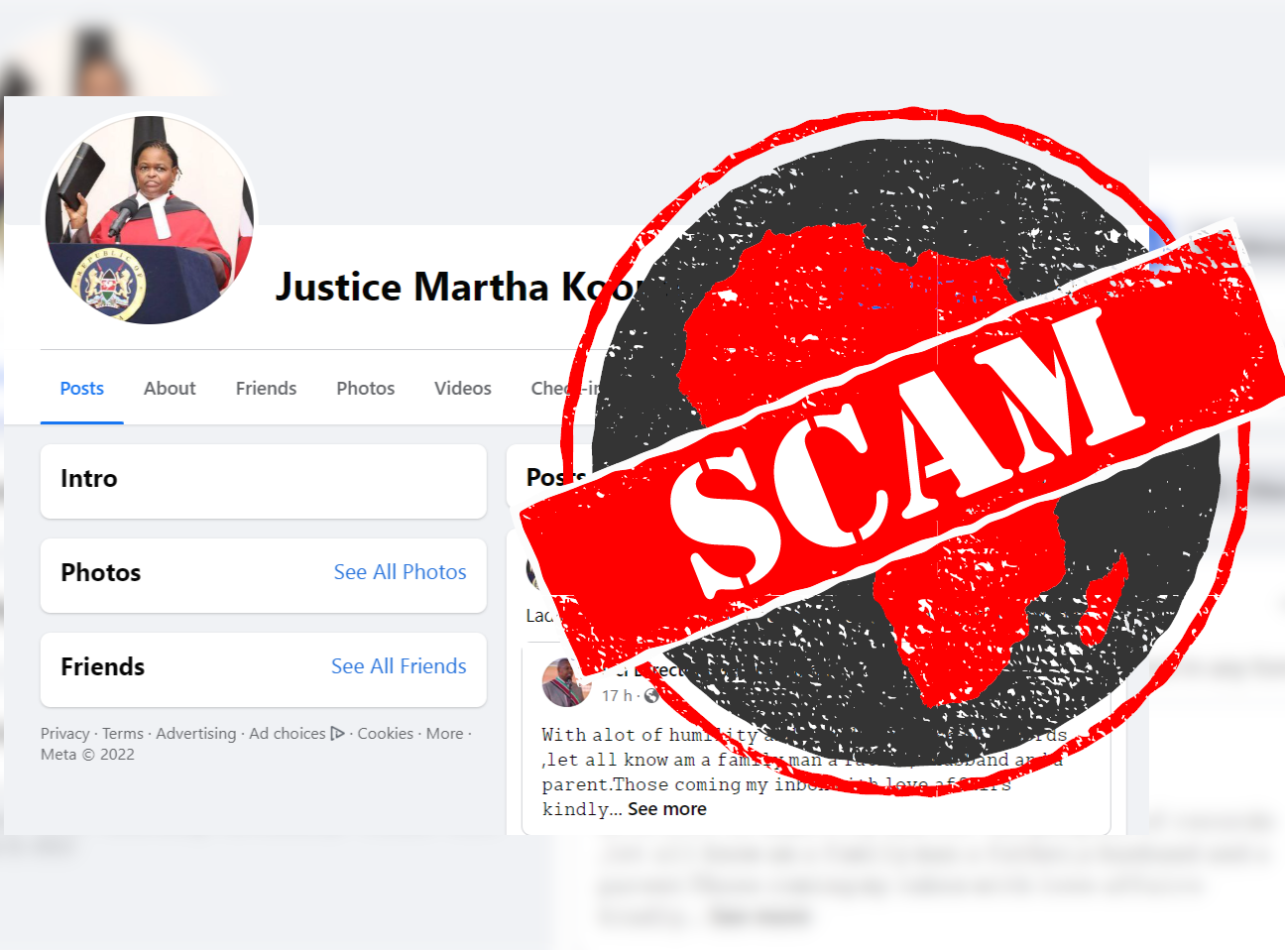IN SHORT: As Kenya’s first female chief justice, Martha Koome has many admirers – including impersonators.
The Facebook page “Justice Martha Koome” would have you believe it is run by Kenya’s chief justice Martha Koome.
The account uses Koome’s name and photo.
One of its posts, dated 24 September 2022, reads: ““I can well state that we have the best president ever in this country, who is god fearing and respect the rule of law. I was happy that first thing he did after sworn in was to appoint the judges the former regime had ignored to swear in.”
Kenya’s supreme court, headed by Koome, upheld deputy president William Ruto’s electoral victory on 5 September.
Raila Odinga, leader of the Azimio coalition, had challenged Ruto’s win as declared by the country’s elections agency in August.
One of Ruto’s first acts as president was to appoint six judges who had been in limbo for three years.
But is the Facebook account really run by CJ Koome?
Signs that the account is fake

Facebook allows public figures such as Koome to verify their pages on the platform. These pages carry a “blue tick” as a verification badge.
CJ Koome’s official Facebook account, Chief Justice Martha K. Koome, is verified. The account offering Kenyan judiciary commentary is not.
Besides, the posts on the fake account are full of spelling and grammar errors, in addition to unusual fonts. This would be unlikely on a Facebook account representing Kenya’s chief justice.
To help protect yourself against online scams, see Africa Check’s guide to Facebook scams and how to spot them.
Republish our content for free
For publishers: what to do if your post is rated false
A fact-checker has rated your Facebook or Instagram post as “false”, “altered”, “partly false” or “missing context”. This could have serious consequences. What do you do?
Click on our guide for the steps you should follow.
Publishers guideAfrica Check teams up with Facebook
Africa Check is a partner in Meta's third-party fact-checking programme to help stop the spread of false information on social media.
The content we rate as “false” will be downgraded on Facebook and Instagram. This means fewer people will see it.
You can also help identify false information on Facebook. This guide explains how.


Add new comment